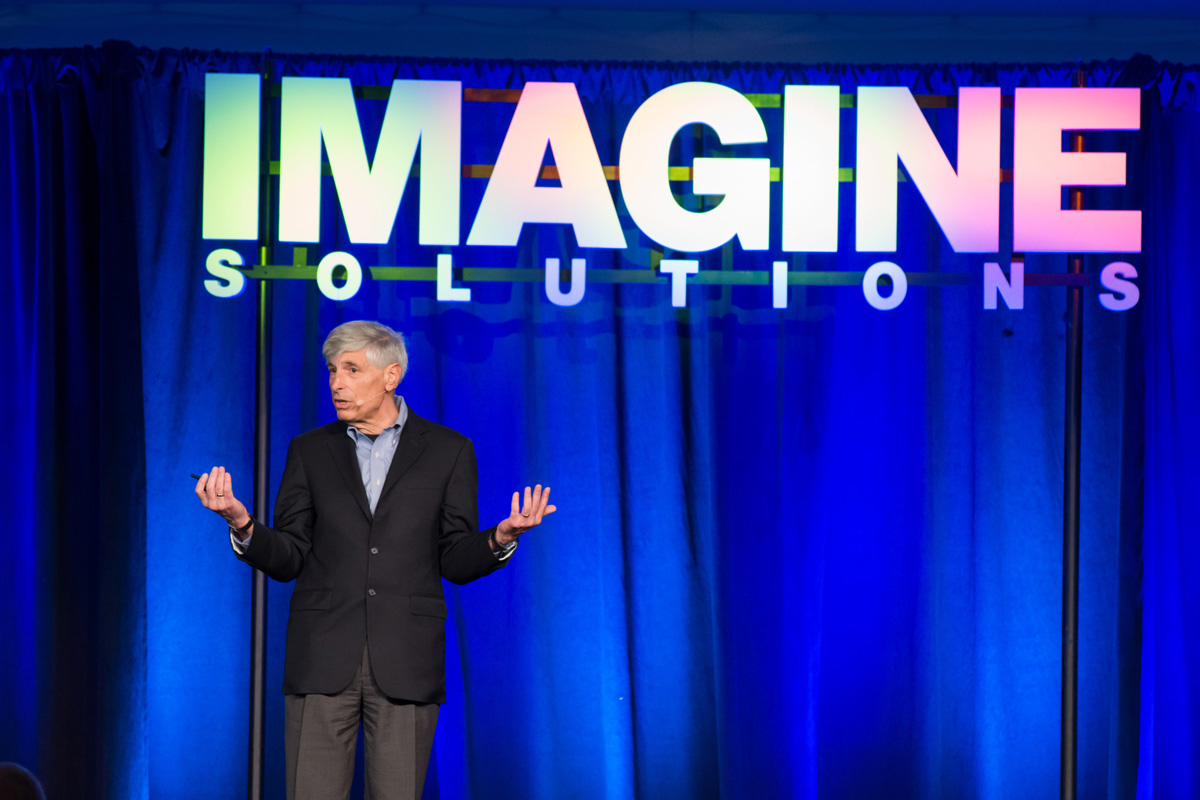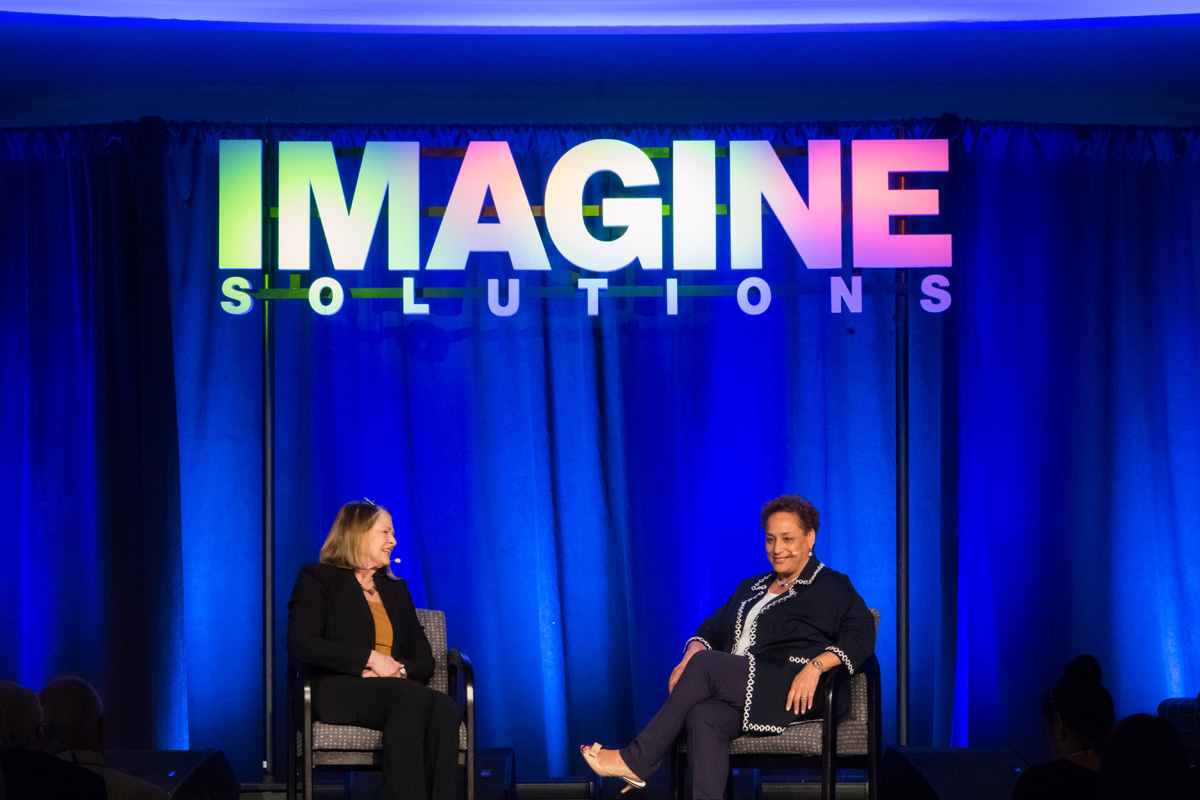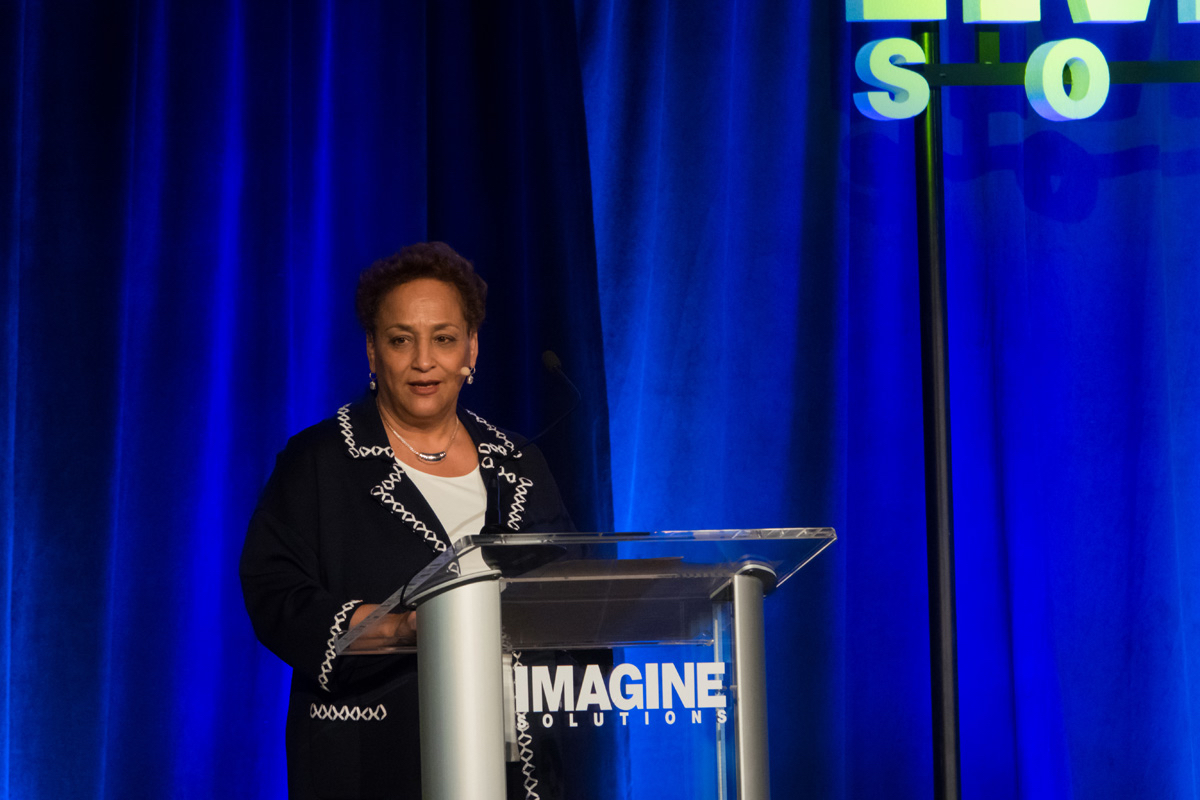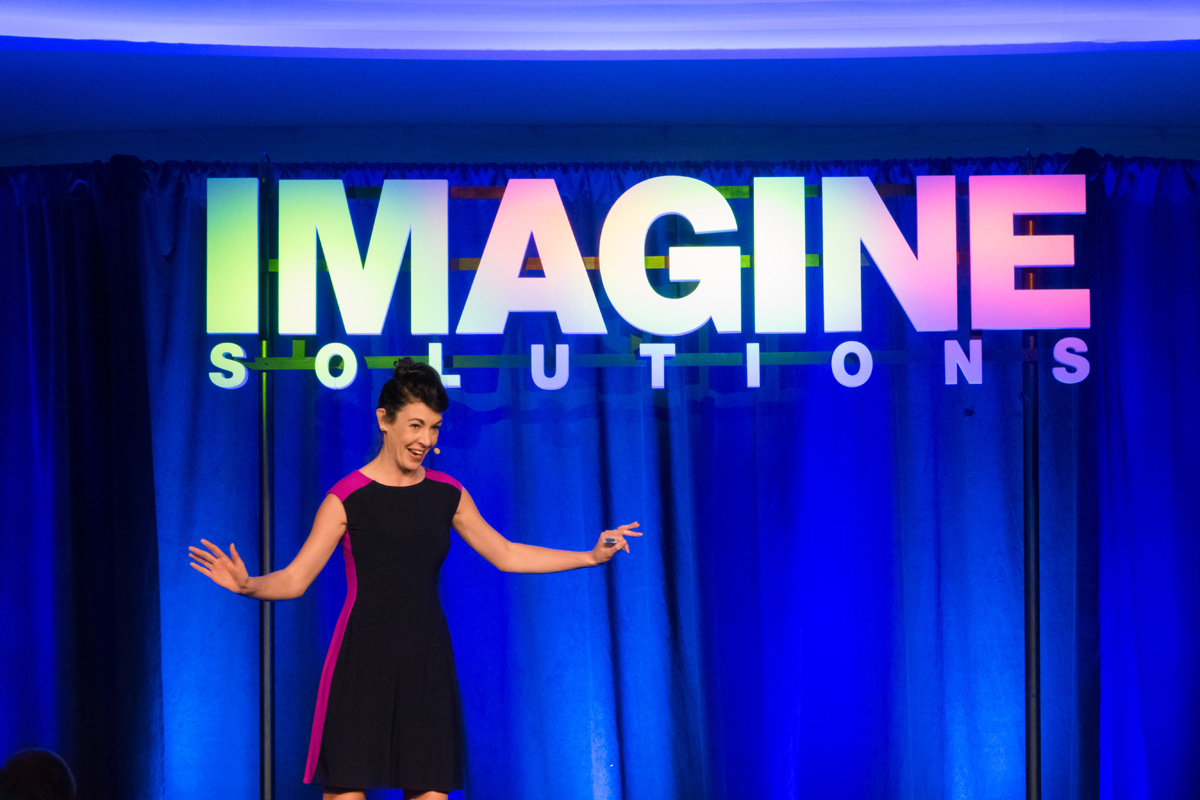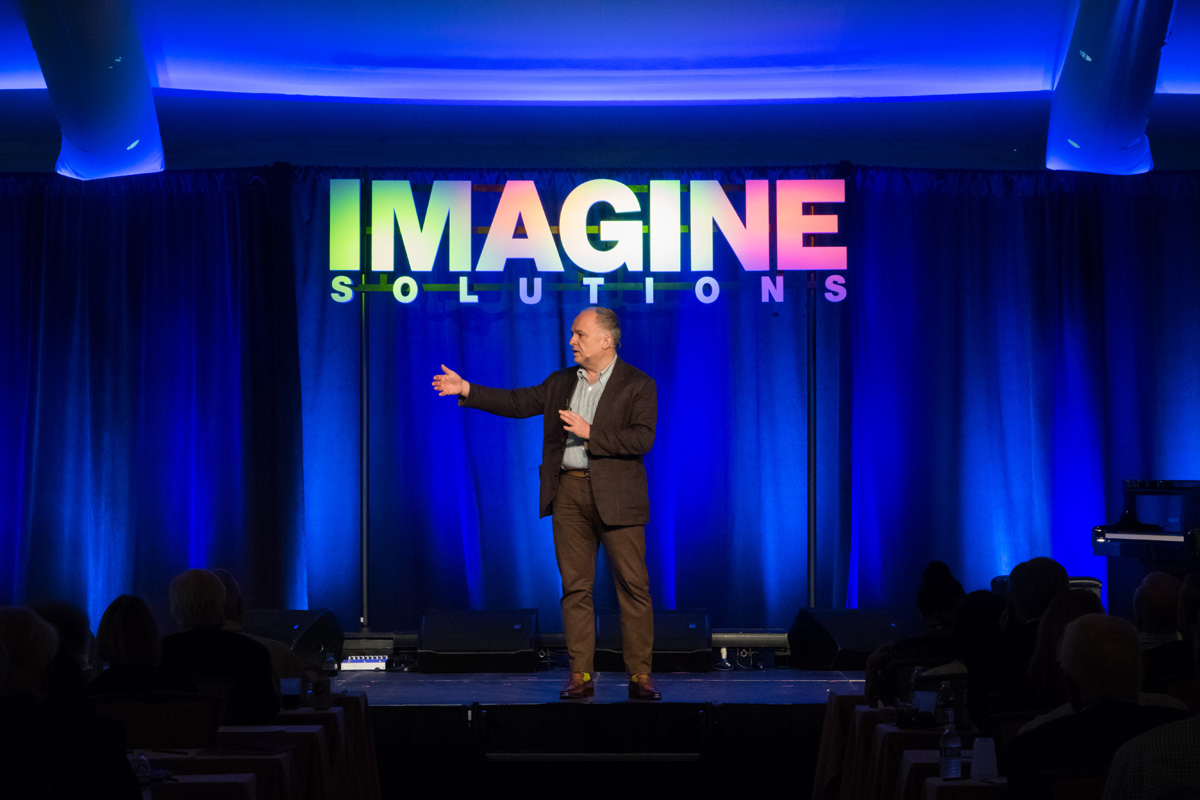Purposeful Engagement for Better Longevity
Dr. Philip Pizzo asks to think about how we can best explore longevity from the perspective of aligning our long-term health with our lifespans. Living longer, how do we ensure we have sufficient quality of life? Wellbeing, equity, social cohesion, personal security, and productivity are all critical considerations. Skillsets, and the time at which we learn and acquire them, will shift. Education, among other parameters, will increasingly happen on a spectrum of age. A key factor is how to maintain purpose, both self and externally directed, and social engagement later in life. Data show just how essential these metrics are in contributing to better long-term wellness, requiring proactive community effort.
00.00
it is now my great pleasure to introduce my esteemed colleague professor Philippi so who will talk about the distinguished careers [Music] well good afternoon good morning it's wonderful to be here with you today I'd like to focus our attention on this evolving change that's taking place that we've been hearing about from the very visionary work that Laura Carstensen has done and the extraordinary contributions that Andrew Scott has just revealed to us I think the question that governs the conversation is not just about aging and longevity but how do we think about individually and collectively aligning our health spans with our life spans regardless of how long we live how do we
01.00
make sure that we have the highest quality that we can accomplish during our lives we can think about this from an individual perspective we can think about it from an institutional perspective and also from a societal perspective for example the Hartford Foundation has recently come up with the societal aging index and they've looked at a number of variables that contribute to how societies including countries will do for example well-being measures of how disability free aging will take place equity what's the degree of poverty and educational attainment cohesion what's the degree of intergenerational interactions that take place what about what about our productivity um how well are we doing is we take on new tasks during aging and security how safe do we feel um what's the degree of protection you know for us so when we think about the societal changes I'm
02.02
going to come back to that a little bit later in the presentation but I want to frame this in a broader question that relates to our life transitions and specifically it builds on this thesis as we construct our lives how do we continue to develop new skills as we move through them now we all know that universities have been doing much the same thing since the 11th century they've been educating young people at the beginning of their lives the question that I'd like to pose for you today is what rolled they play as we migrate through our lives how could we for example learn all we need to know in our early 20s and even into our 30s we heard extraordinary presentations this morning on changes in science and technology will him more about biology and oncology later today and we need to think about how can we regain or accomplish some of these new
03.00
skill sets later in our life and by here I mean during our midlife generally in the period from our 40s to our 50s to our 60s and 70s and and beyond so an important thesis is can we use our universities to come back to and re acquaint ourselves with new skill sets that will enable us to lead our lives more successfully with wellness and lifespan being connected we began an experiment about this at Stanford University in 2015 when we enrolled our first class into what we call the Stanford distinguished careers Institute I'm gonna tell you a little bit more about that in a few moments but I want to frame the context for it first I want to begin by just thinking about some of the epidemiological data that helps to gird the principles that underlie what were attempting to achieve there's some really profound data that came out of from a study from n case and Angus Deaton who won the Nobel Prize in Economics just a couple of years ago
04.01
that has looked at what's happening in the United States in terms of this longevity equation and one of the things that was observed in that study which went from 1999 to 2013 is that while it's true that many people are benefiting from longevity there is one group that's not and that is none Hispanic White's men and women who've had a high school education or less who are largely living in the Midwest or south who are actually dying early why are they dying they're dying because of opioids they're dying because of suicide they're dying because they have a sense of hopelessness around them they've lost purpose which is really an important point and I think when you couple that with additional data that comes from and receptor that tells us that not only purpose but social engagement is really critically important one begins to think about some of the contributing factors that may lead to a more successful lifespan when
05.02
you add to that further from the studies that Raj Chetty at Stanford has done that has looked at which parts of the United States map to having a more successful life journey it turns out that those parts of the United States that do tend to be around the perimeters they tend to include not only socioeconomic status but equally important lifestyle changes so here we begin to think about some of the correlates that might be important for us to consider when we think about lifespan and health span purpose community social engagement and wellness drilling down a little bit further into that when you think about purpose the work of Bill de Minh is really pretty important he's identified purpose in two ways what we do for ourselves and how we do beyond ourselves so he studied this in adolescents and youngsters from 12 to 24 years of age and determined that
06.00
about 20% of individuals actually have a sense of purpose beyond themselves about almost 25 percent do not have a sense of purpose at all now I'm sure everyone in this room does have a sense of purpose the rest are dabblers and dreamers but he went back with an Colby and began to look at some of these same metrics as it relates to people in midlife and here he studied another 1200 individuals and it turns out that about a third actually have a sense of purpose that goes beyond the self there is those who have a sense of purpose for themselves financial security the nature their job how they engage in their community but there are those who extend that beyond themselves to things that have a broader societal impact do they want to change the world do they want to do something that extends what they know to others they they want to have an impact on other people in their community so purpose is critically important and
07.00
we know correlates with a highly successful in fact all-purpose morbidity and mortality correlates with those who have a positive sense of purpose and there is large bodies of data that increasingly support on this particular contribution so purpose and we heard a great presentation this morning about the impact of purpose on our communities so that is so significant and inspirational when we think about the second important factor of social engagement I think about the Harvard study that followed or now over 80 years 268 individuals men of course at the time who began Harvard and who were followed during their lifetimes to see what correlated with a positive outcome and what did correlate with a positive outcome were a variety of different factors that speak to happiness do you have a successful marriage as you move for your life do you have close connections with your
08.01
children and your community and family is your life relatively stress-free and secure these are the correlates that make a big difference in terms of social engagement and that's coupled with some other very important data a recent publication is demonstrated in over 400,000 cases based upon a series of meta analyses that in that the that people who have social engagement have a 50% increase in survival and those who lack it have about a 30% increase in their likelihood for developing cardiovascular or neurodegenerative disease so purpose community really important in terms of social engagement and then the third of course is wellness when we think about wellness of course we tend to think about our activities in terms of a biology but I would like to share with you that equally important and even perhaps more so our lifestyle changes and the environment that we're
09.00
part of and we know that when measures of purpose have been articulated of of wellness have been articulated that it turns out that community is probably the single most important factor followed by lifestyle followed by a stress-free life followed by purpose these are the important metrics that one tends to look at in this particular arena so it's based upon these three factors purpose social engagement and wellness that we began configuring the pilot program that we started at Stanford that in 2015 that I'd now like to describe for you briefly if I can have the slide that shows the program so this is called the Stanford distinguished careers Institute and I want to share with you just a few parts about it and then take you beyond it to what I hope will become much more of a national and global effort and it's asking the question what's the role of the University and taking individuals
10.02
like you in this room and bringing you back and allow you to reignite your sense of purpose to re-engage your social connectedness and to recalibrate your sense of wellness and if we can do that on an individual level can we actually compress your morbidity can we shift to the right and reduce the time during which the normal consequences of Aging might take place that's the fundamental thesis behind this program how do we do it we're taking individuals in midlife and asking them if they are interested in applying to our program to tell us which of eight purpose pathways they'd be interested in pursuing things like arts and humanities business and entrepreneurship engineering sciences environmental issues international policy and the like and we bring them to Stanford for a year-long program where we align them in small groups with a
11.01
faculty advisor and then allow them to take classes across the university now these are not separate classes these are sitting side-by-side with undergraduate and graduate students because this is another critical part of what we're exploring can we transform the nature of higher education to foster intergenerational learning and teaching rather than having a separation of the age bands why not bring them together and then act what we're observing is an incredible amount of interactive mentoring and sharing of ideas among young people and people in mid life so this is a key part of the equation and we couple that with ways of building community of bringing our fellows together and allowing them to learn from and about each other using the art of storytelling as a mechanism for engaging in their life journey we bring them together for different interactions with faculty leaders for colloquia in fact on
12.01
Wednesday of this week and quite pursuant to the topic of this morning we'll be spending the whole day on artificial intelligence and then for various kinds of community activities and then with our wellness programs we work with Stanford medicine to really think about how we can recalibrate that sense of wellness so people have the endurance to traverse the life journey going forward now we view this project or this program as the beginning as I alluded to earlier of what we hope will become much more of a national and global transformation the question we're asking is shouldn't all or most colleges and universities large and small community colleges well engage in ways of bringing people back to recalibrate their lives and reignite their sense of purpose and if we can do that and some a that on to a larger scale um can we not only compress individual morbidity but
13.00
can we have a larger impact on the societal consequences the fundamental question that we're asking which will be longitudinal of course is over time can we see a reduction in the need for medical and social services as people age and do better with their lives I think that this is a critically important question for all of us as we've heard from Laura and from Andrew we are witnessing the greatest change that society has yet rendered it is going to be 20 percent in the United States of individuals older than 65 but in parts of Europe and Asia it's going to be 35 to 40 and how our society is going to calibrate these kinds of interactions how are we going to avoid a tilt of resource allocations and I think at least one step toward that is to begin to rethink this trilogy of education work and retirement and spread it out
14.02
through the course of one's life rather than compartmentalizing our lives into different sectors why not think about them as being more of a continuum why not utilize the opportunity to gain new knowledge as a way of creating new opportunities some of which will be new jobs new volunteer activities new contributions to communities and new ways of being able to protect our society as we move through this next very exciting phase so thank you very much for listening me today and I'll be more than happy to speak with you as well later during the day thank you [Applause]

